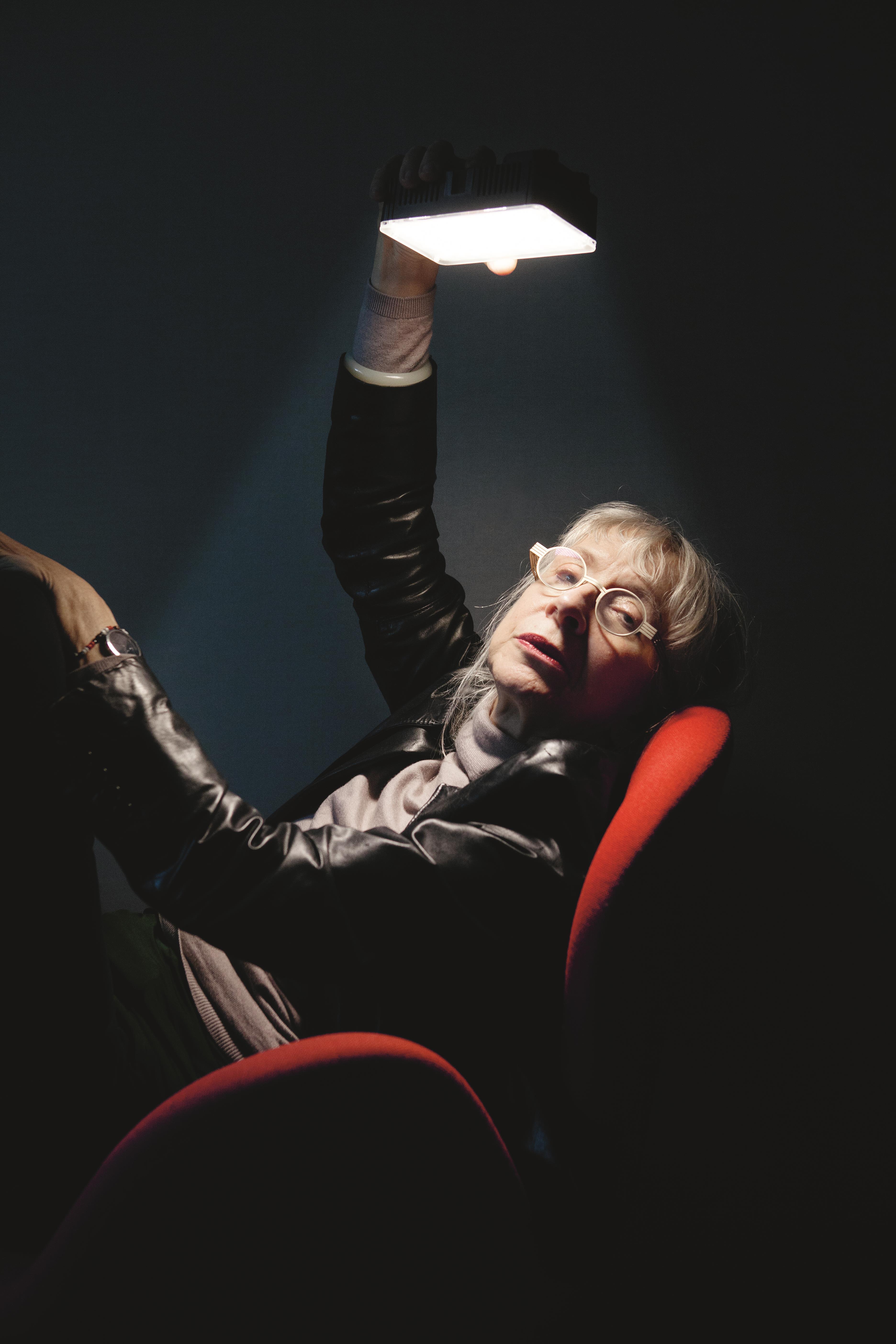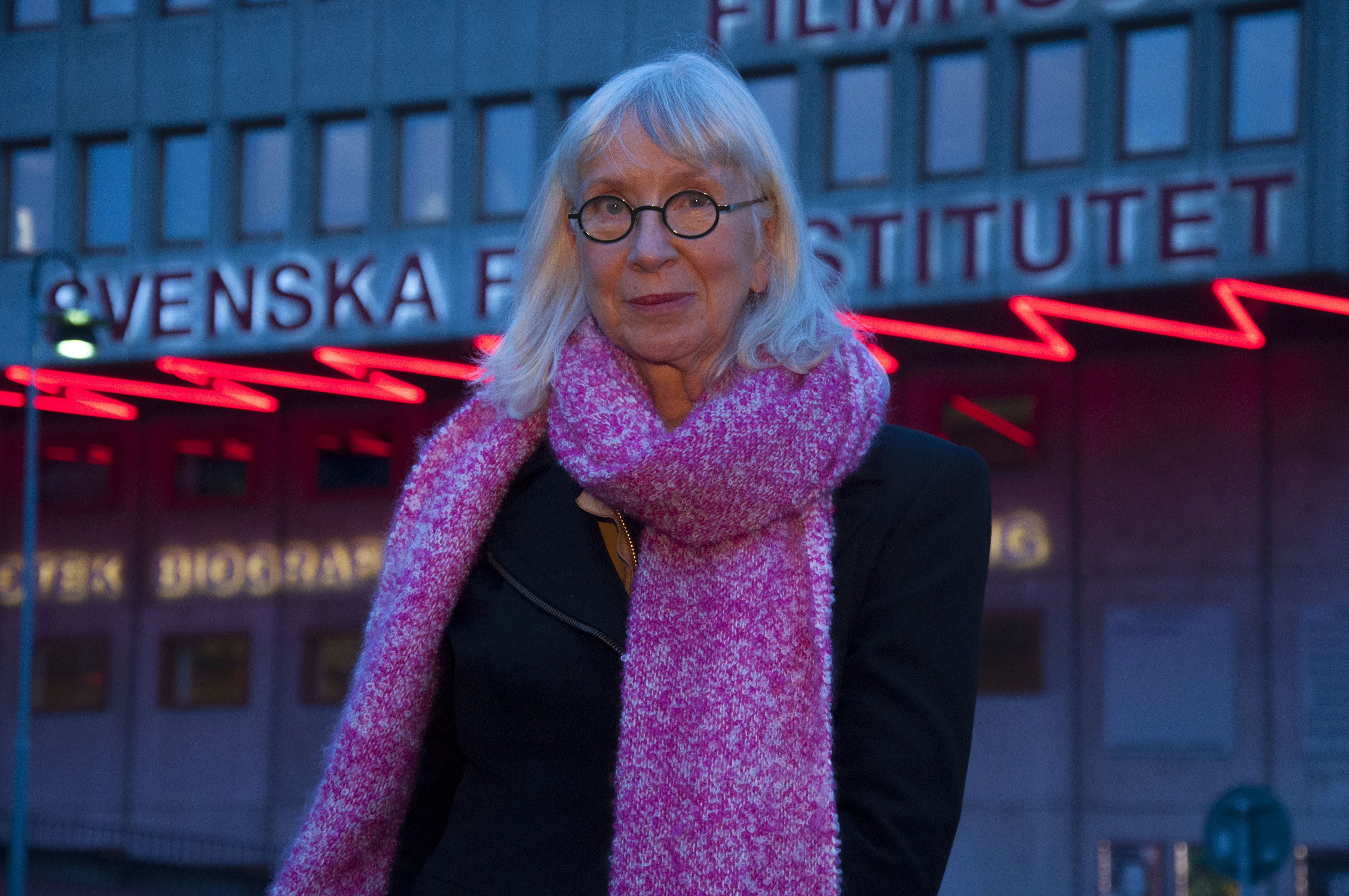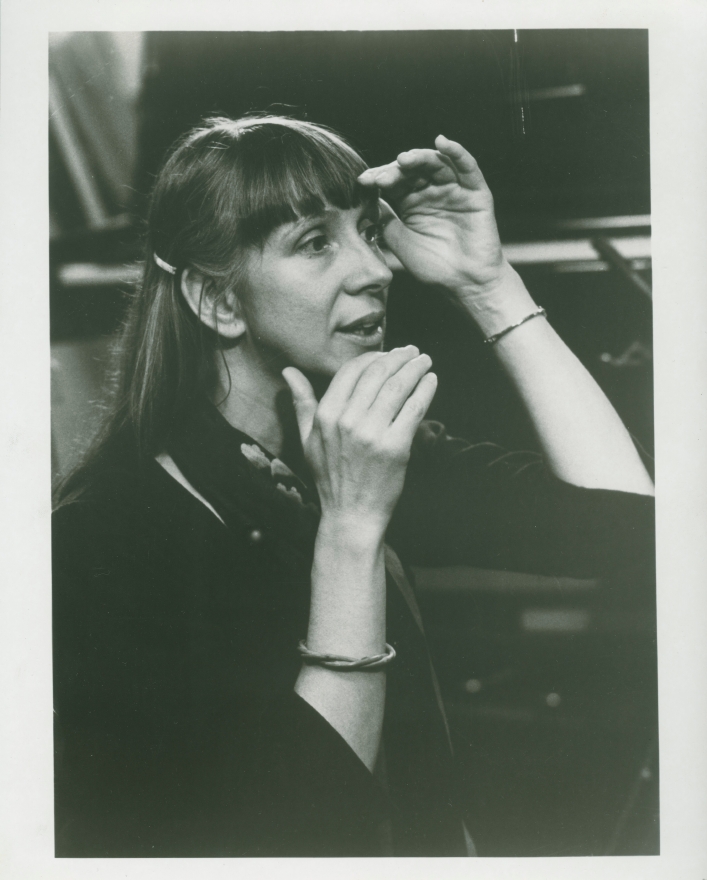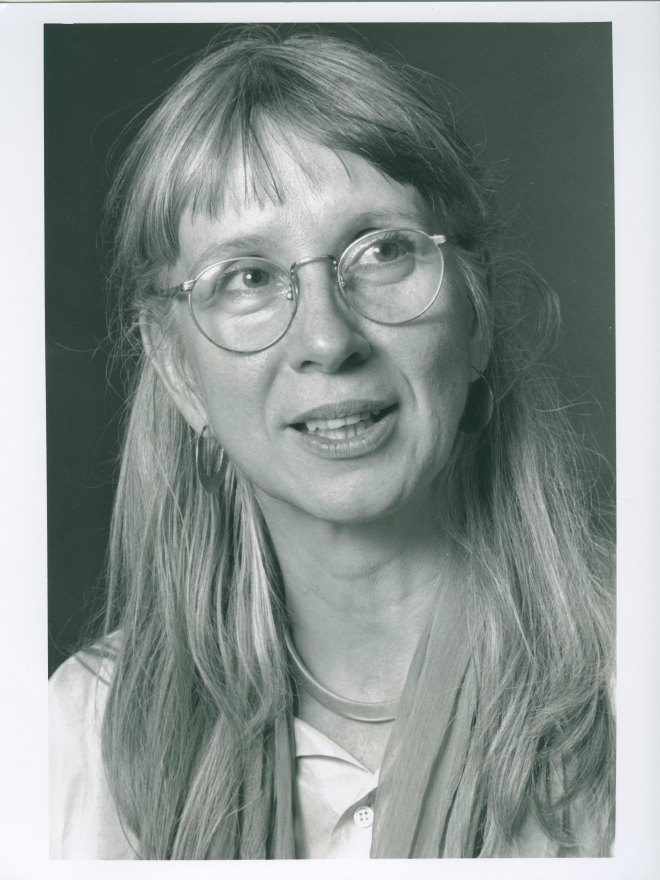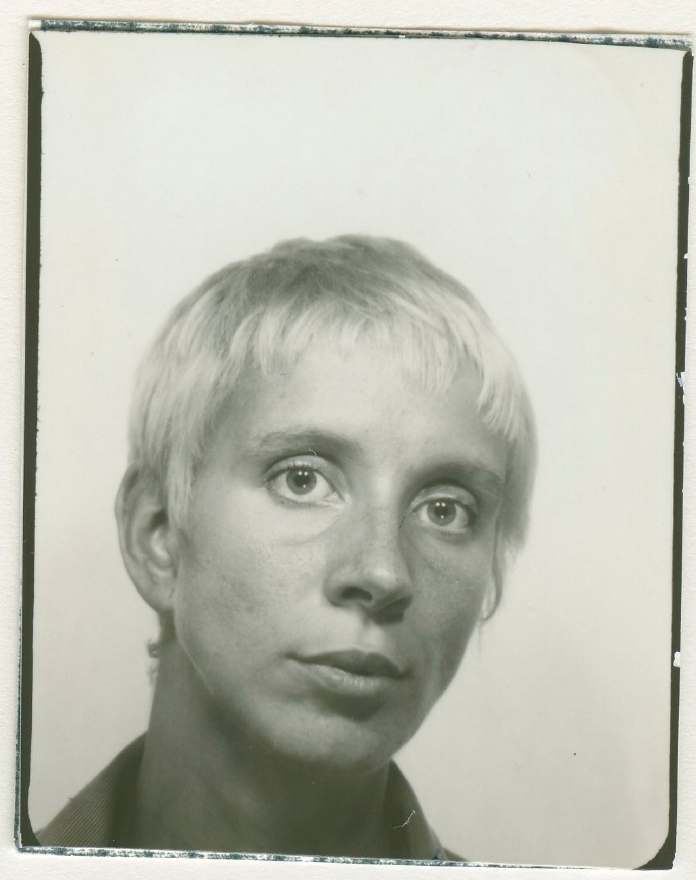Suzanne Osten swept into the Swedish film world like a breath of fresh air in the early 1980s with her intense, ground-breaking, radiantly beautiful yet tragic story Mamma, a filmic portrait of her mother, Gerd Osten. Today, after ten films and a long career as opinion leader, role model and living legend, she says she is still striving to “break the film code”.
Suzanne Osten grew up under chaotic conditions with her mother Gerd Osten, a brilliant film critic and aspiring filmmaker, but also someone who sank ever deeper into mental illness. Eventually, as a teenager, Suzanne called the child welfare authority herself. Suzanne Osten went to live with her sister Pia Baeckström, who was eight years older, and their mother spent the rest of her life in hospital.
Osten began her career in theatre and quickly became one of the leading forces in the feminist leftist movement of the 1970s. The play Jösses flickor! (1974), co-written with Margareta Garpe, laid the foundation for Osten’s significance as a feminist pioneer and living legend.
Unga Klara became Osten’s home stage and theatre workshop, a place for joyful theatrical experimentation where she developed the collective work method, an approach she has since used successfully in her films.
In 1978 Suzanne Osten contributed to the collective film Barn i Afrika, a short made for TV2. 1982 was Osten’s first feature-length film, Mamma, the film that Gerd Osten never got to make herself. Malin Ek played a woman obsessed with a single strong desire: to make film! She encounters a wall of resistance, not only in the form of World War II but also the patronizing pats on the shoulder of the patriarchy.
Suzanne Osten’s debut feature was unusual and liberating at the same time. Mamma joined the line of several feminist horror films of the time, about strong, creative, crazy women: Graeme Clifford’s 1982 Frances about film star Frances Farmer, the film about artist Camille Claudel by Bruno Nuytten from 1988, and Jane Campion’s An Angel at My Table from 1990, about author Janet Frame. For anyone who had experienced a painful relationship with their own mother, Mamma offered a kind of catharsis. Osten would return to the theme of abandoned child in a trash-strewn apartment and an increasingly irrational parent later on in her career.
Mamma was followed by the joyful musical comedy The Mozart Brothers/Bröderna Mozart in 1986. Etienne Glaser played the lead as the charming, boundless director obsessed with putting on Mozart’s Don Giovanni at the Royal Opera. At the same time, The Mozart Brothers is a magnificent ensemble where everyone, including the cleaners, are touched by the artistic process. It established one of Osten’s recurring themes, on the freedom and authority of the individual versus the collective.
Quite by coincidence, The Mozart Brothers came to be associated with the assassination of Olof Palme, since this was the film the Swedish prime minister and his wife had seen just before he was killed in central Stockholm. In 1993, in the book They shoot Prime Ministers, don’t they?, film magazine Filmkonst poses a question to the Swedish film scene of the day: Why is the assassination of Olof Palme never shown in film? Suzanne Osten replied: “I’ve already shown it. The Guardian Angel/Skyddsängeln. It was tough for me when The Mozart Brothers, a positive, humorous film, became associated with the assassination. Essentially, The Guardian Angel was my answer. It’s a film about political violence and a portrait of Sweden.”
Before The Guardian Angel (1990) Osten made Livsfarlig film (1988), a kind of contribution to the debate about violent film and its consequences. ‘Video violence’ had been a hot topic of debate in Sweden in the 1980s, ever since a scene from the banned slasher movie The Texas Chain Saw Massacre had been shown on TV show Studio S.
In 1993 Osten was back with Speak Up! It’s So Dark/Tala! Det är så mörkt, about a charged meeting between a Jewish teacher and a young neo-Nazi. The film was described as a ‘contemporary film,” but was also based partly on the play Hitler’s Childhood, which Osten had put on at Unga Klara in 1984 and was inspired by the theories of psychoanalyst Alice Miller. Osten now took a position as one of (few) Swedish feature film directors who was using film as a culture-political tool and weapon of social criticism. In Just You and Me/Bara du och jag (1994), she challenged the establishment with a down-to-earth comedy about a young, black, female government minister played by Francesca Quartey.
But after Bengbulan (1996), Osten found it harder to gain widespread acceptance of her films. The film, which looks at violence among children and bullying, prompted debate in the press – both around the film’s subject matter and its funding. The Swedish censor originally gave the movie an age 15 rating, although this was later reduced to 11. Also, during production Osten had received funding directly from Mona Sahlin’s gender equality fund, while Osten was also advisor to the Minister for Culture at the time, Margot Wallström.
Since the turn of the century Osten has made three films highlighting the relationship between normal and ‘non-normal’ people. Besvärliga människor (2001) was based on a play produced by Osten at Stockholm City Theatre/Unga Klara in 1999. In Wellkåm to Verona (2006) she depicted the life-joy and anxiety at an old people’s home, featuring some of the best-loved actors in Swedish film and theatre: Jan Malmsjö, Erland Josephson, Ghita Nörby, Simon Norrthon, Malin Ek and others.
With The Girl, the Mother and the Demons/Flickan, mamman och demonerna (2016), Osten returned to the story of the little girl and her mentally ill mother. Also in this case, the film was based on a play and book by Suzanne Osten. The film is a powerful portrayal of a child’s upbringing in the borderland between safety and horror. The film was received with great acclaim, but again Osten had to fight to have the age rating reduced. Once the Swedish Media Council’s decision had been appealed against to the Administrative Court, the rating was reduced from 15 to 11. This meant that The Girl, the Mother and the Demons could reach the young audience for which it was intended.
In 2015-2017 Osten was appointed Children’s Film Ambassador by the Swedish Film Institute – a role mainly focusing on meeting young people and adults in public discussions and at film screenings.
Suzanne Osten has received many awards over the years, including a Guldbagge Award for Best Director in 1987 for The Mozart Brothers. She was nominated for the Dagens Nyheter Culture Award in January 2017, and said at the time that her upcoming film goes by the working title Love Duet.
Text: Mikaela Kindblom (2017)
(translated by Matt Bibby)
Suzanne Osten is a searching, inquisitive and enthusiastic artist. Her way of relating to life became a kind of pillar for me in my identity. I took every word in our taped interviews on board, and they still influence me today,” writes Helena von Zweigbergk, author of the book of interviews entitled Osten om Osten (Osten on Osten).
Research it! Don’t just sit and wonder!
Like so many times before, I hear Suzanne Osten’s words in my mind.
When I saw Mamma in 1982, it moved me deeply. A film about a woman’s attempt to move into the wider world out of her universe, which was ever-shrinking – not just because of the Second World War, but also her mental illness.
The film was about Suzanne’s own mother, Gerd Osten. It showed a kind of seeking and an existential disorientation in a woman, and both the film’s form and its subject moved me deeply, as I said. That a film could be made in that way! And with that kind of subject matter!
When Suzanne Osten was later making The Mozart Brothers, I asked if I could be involved. Day in, day out I hung around the film set with my tape recorder, watching, asking questions, absorbing. And I noticed how important Suzanne’s words were becoming to me. I wanted to talk more, and we made a book of interviews together, Osten on Osten – childhood, feminism and craziness. It was published by Alfabeta in 1990.
Concrete tip: Only work with people you think are good!
Words of wisdom: Stupidity is a block to punishment.
Or: If we change ourselves, we change the world.
So see the searching and wisdom of her films! Whatever you think, they won’t be like anything you’ve seen before. And god knows that Suzanne has had to fight for her artistic freedom in a stern film industry that didn’t like things to be created outside the box; in fact, it was the box.
The themes are always exciting: suspicion of strangers in The Guardian Angel, the new family in Just you and Me, our relationship with fictitious violence in Livsfarlig film, the vicissitudes of creation in The Mozart Brothers, fascism in Speak Up! It’s So Dark, genuine horror in Bengbulan, isolation in Besvärliga människor, and ageing in Wellkåm to Verona. Difficult subjects, vital subjects.
And I know exactly what Suzanne would say to herself: Research it!
Helena von Zweigbergk, journalist and author
(translated by Matt Bibby)
(This is an abridged version of Helena von Zweigbergk’s foreword to the programme booklet in the box set Det bästa av Suzanne Osten – film, feminism och galenskap (The Best of Suzanne Osten – film, feminism and craziness, published in 2015 by Studio S Entertainment, reproduced here with the kind permission of the author and Stefan Nylén.)
(Video interview in Swedish)
Basic info
Main profession: Director
Born: 1944
Died: 2024
Active: 1974-
Links
Filmography
Regi:
Flickan, mamman och demonerna (2016)
Wellkåmm to Verona (2006)
Besvärliga människor (2001)
Bengbulan (1996)
Bara du & jag (1994)
Tala! Det är så mörkt (1993)
Skyddsängeln (1990)
Livsfarlig film (1988)
Bröderna Mozart (1986)
Mamma (1982)
Barn i Afrika (1978)
Manus:
Flickan, mamman och demonerna (2016)
Wellkåmm to Verona (2006)
Bengbulan (1996)
Bara du & jag (1994)
Skyddsängeln (1990)
Livsfarlig film (1988)
Bröderna Mozart (1986)
Mamma (1982)
Moa, Östen och Stella (1974)
Idé:
Bengbulan (1996)
Roll:
Besvärliga människor (2001)
Speaker:
Barn i Afrika (1978)
Awards
2022: Hedersguldbagge.
2000: Hedersdoktor vid Lunds universitet.
1995: Henrik Steffen-pris, Kiel.
1991: Festivalpris (Rouen), Skyddsängeln.
1990: Linköpings kommuns Tage Danielsson-pris.
1987: Guldbagge, Bästa regi för Bröderna Mozart.
